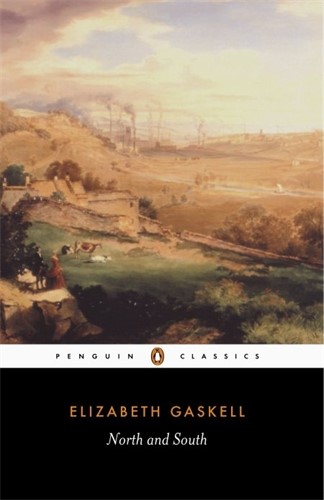451 pages, $12.00
Review by Julienne Isaacs
Elizabeth Gaskell is a relatively unsung Victorian novelist, at least compared with Jane Austen, the Brontës and George Eliot. Like her contemporaries, Gaskell uses the marriage plot as a vehicle for female self-actualization and empowerment. But in my opinion, she surpasses them all.
Eliot has a superior knowledge of politics and a shrewd sense of community life, Austen has an ungodly talent for drawing-room drama, and the Brontës infuse gothic panoramas with intense sexual energy. These elements are present in Gaskell’s work, too, but she adds a generous social ethic and a talent for complex human drama. In North and South, Gaskell makes social concerns the core of a love story that is wonderfully readable more than 150 years after its publication. This is a novel I can’t quit, and can’t even skim.
The protagonist of North and South is Margaret Hale, a refined country parson’s daughter who, in the novel’s opening chapters, refuses marriage to attractive lawyer Henry Lennox for the sole reason that “I have never thought of—you, but as a friend.” Margaret has average looks elevated into beauty by her aristocratic bearing, but limited social capital, and almost no actual capital. But this refusal is key to her character. Margaret makes decisions for positive reasons only, never to honor convention or out of a sense of victimhood.
The plot, in a nutshell: shortly after this aborted proposal, Margaret’s parson father leaves the Church of England for “reasons of conscience,” uprooting his daughter and fragile wife to—shockingly—an industrial town in the north of England to become a tutor to local manufacturers bent on self-improvement.
One of these is the commanding John Thornton, a local factory owner who has built an empire from scraps, and carries “an expression of resolution and power… very inflexible… sagacious, and strong.” Thornton believes in maintaining class divides for ontological reasons. To him, masters naturally combine “heads” with “hands,” while workers are “incapable of independent action” during business hours and are of a lower order, having refrained—out of laziness or lack of initiative—from struggling into a position of power themselves. Soon enough, he falls in love with Margaret, who has in turn made friends with local factory workers and follows their union activity with sympathetic interest.
It’s a star-crossed romance, certainly, but part of its power lies in the fact that, for Margaret at least, it isn’t a romance at all. Thornton spends over half of this novel attempting to become worthy of Margaret through an agonizing process of self-revision, and despite the disapproval of his formidable, granite-like mother—but Margaret focuses on romantic love not at all. Hers is agape love, a charitable love of all people, stemming from her faith in God—and faith in herself as his agent.
Gaskell’s editor for North and South was Charles Dickens; he vetoed her original choice of title, “Margaret Hale,” probably for good reasons. But Margaret is North and South’s central study, and she has—and gains—more agency than almost any other character in the novel. She has power: in a pivotal scene, she uses her body to shield Thornton from an angry, stone-wielding mob. She bears the emotional brunt of multiple family tragedies to spare her sensitive father. When no-one else in an entire community has the courage to inform a local woman of her husband’s shameful death, Margaret goes.
As Charlotte Brontë does in Jane Eyre, Gaskell makes financial independence a prerequisite for Margaret’s ultimate acceptance of a marriage proposal. Gaskell views marriage as a contract best entered from the standpoint of mutual strength, never out of necessity; before Margaret considers this step she has also achieved social independence from her dominating family.
But Margaret can love, too. “Margaret was not a ready lover, but where she loved she loved passionately, and with no small degree of jealousy,” Gaskell writes. The attraction between Margaret, with her inflexibly high moral character, and the equally indomitable John Thornton, makes for some gorgeous scenes, rich with repressed feeling. As Patricia Ingham argues in the introduction to the Penguin edition, theirs is a romance based on economics. “Only when she has achieved control over his will in the treatment of his workers can Margaret happily make a rapid sexual submission,” Ingham writes. But Ingham potentially pays Thornton a disservice here: it’s Margaret who inspires a second look at his business practices, but once Thornton has looked at the suffering right under his nose, he can’t look away. Neither can he look away from Margaret.
Neither can we.
***
Julienne Isaacs is a Winnipeg writer. Her essays, reviews and interviews have appeared in The Globe & Mail, The Winnipeg Review, CV2 magazine, Whether magazine, The Rusty Toque and Rhubarb magazine. She is staff writer for The Puritan’s blog, The Town Crier.
![[PANK]](https://pankmagazine.com/wp-content/themes/pank/assets/images/pank-logo-large.png)

